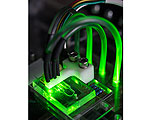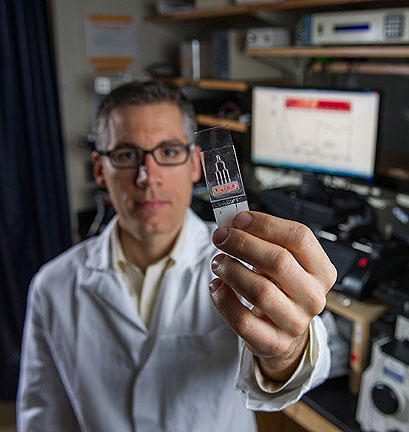Microfluidic Chip Tests Anti-Clotting Medications
 Mar-27-14
A new device able to measure how drugs influence blood clotting could help doctors evaluate how medication affects a patient's blood and allow them to prescribe the most effective treatment—saving both time and money.
Mar-27-14
A new device able to measure how drugs influence blood clotting could help doctors evaluate how medication affects a patient's blood and allow them to prescribe the most effective treatment—saving both time and money.Although aspirin and other blood thinners help prevent the thrombi that can lead to strokes and heart attacks, the medications are not always effective in some patients. Although doctors have been noting for some time that many patients who were given aspirin did not show any benefit, the reason for this discrepancy was previously not known.
Enter the team from Georgia Tech. The team constructed a device that sends a sample of blood mixed with anti-clotting medication through a series of four tubes that mimic the coronary arteries. Each tube subjects the blood to a different amount of pressure, which replicates the motion of the blood moving through healthy arteries as well as those that are already partially clogged (atherosclerotic). By observing the reaction of the blood as it was subjected to different pressures, the team learned that the shear rate (determined by the narrowness of the artery) affected the effectiveness of the aspirin. Aspirin treatment is less effective in patients with narrowed arteries, while GPIIb/IIIa-inhibitors can be prescribed successfully to prevent blood clots regardless of the shear rate.
Image: Craig Forest holds the microfluidic chip used in the study. .

More Info about this Invention:
[MEDGADGET.COM][GEORGIA TECH]

Add Your Comment